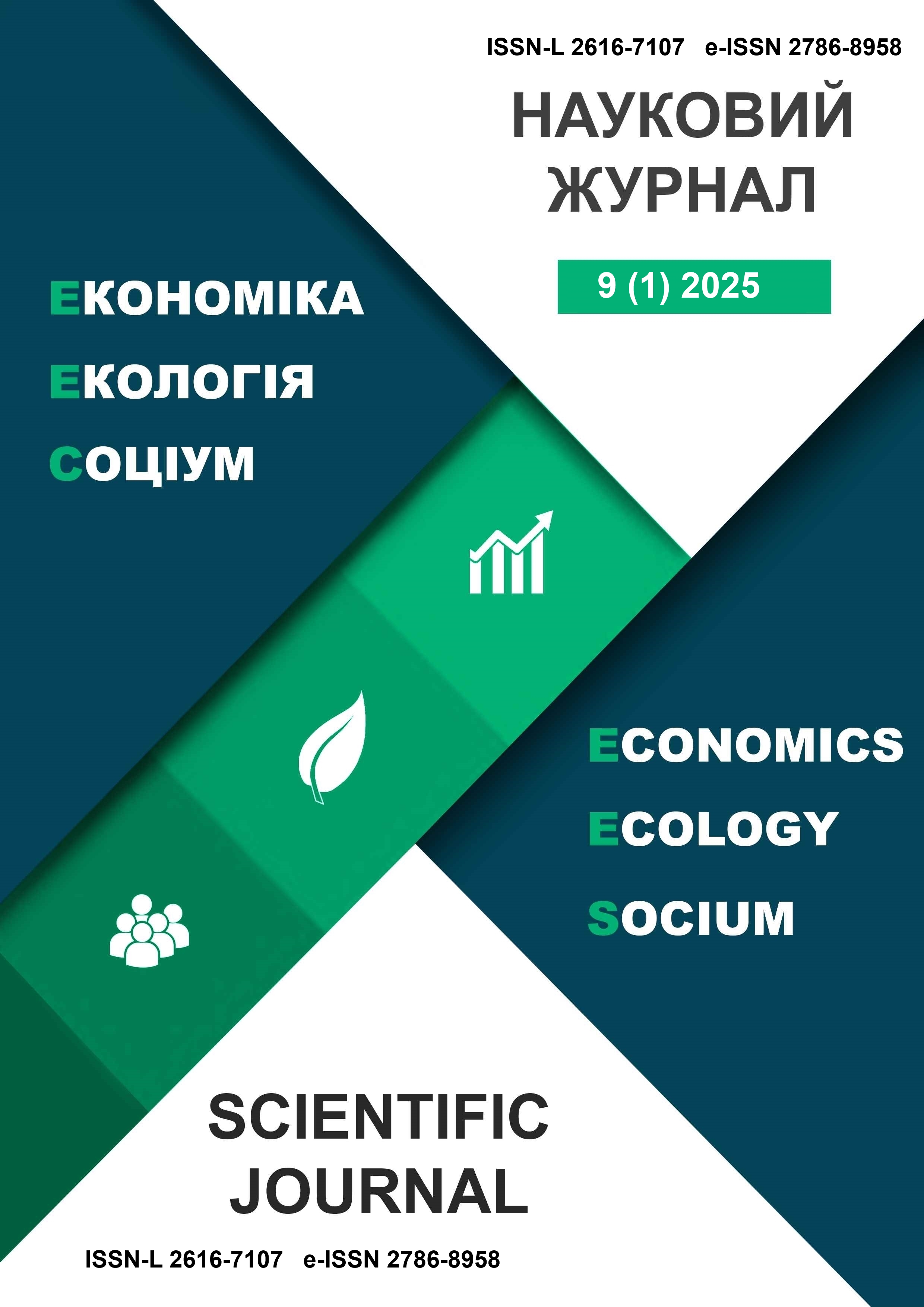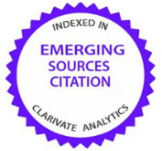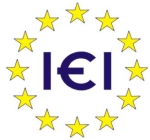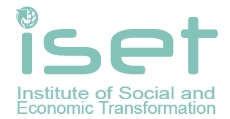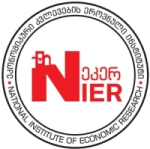Strategic Innovative Management and Sustainable Development of Industrial Enterprises
Abstract
Introduction. Amidst the dynamic changes in the competitive environment, strategic management of innovative development is a decisive factor in ensuring the stability and sustainable development of industrial enterprises. Despite the importance of innovative development, many enterprises face problems implementing an effective innovation strategy and lacking an innovative culture due to successfully managing projects with a high share of research and development (R&D).
Aim and tasks. This study aims to analyse the factors that influence the effectiveness of strategic management in the innovative development of industrial enterprises and to form a case for modelling business processes by assessing the cost component of R&D and its components.
Results. The results of the study show that sustainable development of an industrial enterprise is possible under conditions of high-quality strategic management (“Technology Roadmapping” of industrial innovations and the “Open Innovation” model). The effectiveness of strategic management in the development of an industrial enterprise depends on factors such as the development of an innovation culture, investments in innovation processes, the ability of the enterprise to adapt, and the availability of information necessary for making strategic decisions. According to the results obtained in Ukraine, there is an increase in the volume of spending on scientific experiments and developments by 2.1% in 2022 compared to 2018, while spending on applied research increased by 35.3%, with a decrease in spending on scientific experimental developments by 13.1%. According to the results of calculating the correlation coefficient, it was found that there is a close relationship (0.913) between the cost of implementing innovations in production and the cost of R&D, which is the basis for coordinating the modelling of scientific and technical activities and business processes at the regional economy level.
Conclusions. During this research, the features of creating a technological map of innovation at an industrial enterprise were considered, and the open innovation model was adapted to the operating conditions of an industrial enterprise. Considering that the innovative basis of industrial content is formed in different regions of Ukraine with different dynamics, a recommendation was made regarding using interregional cooperation tools to form economic models for the sustainable development of industrial enterprises.
Keywords:
strategies, innovative development, industrial enterprise, technological innovation map, open innovation.References
Biswas, I., Singh, G., Tiwari, S., Choi, T.-M., & Pethe, S. (2024). Managing Industry 4.0 supply chains with innovative and traditional products: Contract cessation points and value of information. European Journal of Operational Research, 316(2), 539–555. https://doi.org/10.1016/j.ejor.2024.01.047
Bobro, N. (n.d.). Factors of digital economy development. Baltija Publishing. Retrieved from http://www.baltijapublishing.lv/omp/index.php/bp/catalog/view/477/12717/26586-1
Brem, A., Tidd, J., & Daim, T. U. (2019). Managing innovation: Understanding and motivating crowds. World Scientific.
Chkhaidze, I., Makharadze, N., & Devadze, L. (2023). Management problems of innovative business projects and ways of improvement. Economics Ecology Socium, 7(1), 71-83. https://doi.org/10.31520/2616-7107/2023.7.1-7
Chupryna, I., Tormosov, R., Abzhanova, D., Ryzhakov, D., Gonchar, V., & Plys, N. (2022). Scientific and methodological approaches to risk management of clean energy projects implemented in Ukraine on the terms of public-private partnership. 2022 International Conference on Smart Information Systems and Technologies (SIST), 1–8. https://doi.org/10.1109/SIST54437.2022.9945809
Cucino, V., Feola, R., & Piccaluga, A. (2024). The antecedents of humane entrepreneurial approach in innovative start-ups: An alternative way to promote sustainable development. 133-151. https://doi.org/10.1108/978-1-83797-374-320241008
Di Virgilio, F.; Dimitrov, R., Dorokhova, L.; Yermolenko, O.; Dorokhov, O., Petrova, M. (2023). Innovation factors for high and middle-income countries in the innovation management context. Access to science, business, innovation in the digital economy, ACCESS Press, 4(3), 434-452, https://doi.org/10.46656/access.2023.4.3(8)
Fitz-Oliveira, M., & Wasgen, A. M. (2023). Innovation capability and sustainability: A bibliometric analysis. Technological Sustainability, 6, 156-176. https://doi.org/10.1108/TECHS-06-2022-0027
Foster-McGregor, N., Alcorta, L., Szirmai, A., & Verspagen, B. (2021). New perspectives on structural change: Causes and consequences of structural change in the global economy. Oxford University Press.
Gozali, L., Zagloel, T. Y., Simatupang, T. M., Sutopo, W., Gunawan, A., Liang, Y.-C., & Suseno, Y. (2024). The important role of system dynamics investigation on business model, industry, and performance management. The International Journal of Productivity and Performance Management, 73(6), 945-980. https://doi.org/10.1108/IJPPM-07-2021-0399
Hirna, O., Haivoronska, I., Vlasenko, D., Brodiuk, Y., & Verbytska, A. (2022). To the issue of the improvement of Ukrainian entrepreneurial strategies: Digital marketing as a modern tool for promotion of goods and services in social media. Financial and Credit Activity: Problems of Theory and Practice, 43(2), 349-356. https://doi.org/10.55643/fcaptp.2.43.2022.3752
Koval, V., Nencheva, I., Metil, T., Honcharova, I., & Valiavska, N. (2024). Assessment of marketing impacts on innovation advancement in the transport cluster. E3S Web of Conferences, 558, 01023. https://doi.org/10.1051/e3sconf/202455801023
Machado, C., & Davim, J. P. (Eds.). (2022). Organizational innovation in the digital age. Springer International Publishing.
Massa, S., Annosi, M. C., Marchegiani, L., & Messeni Petruzzelli, A. (2023). Digital technologies and knowledge processes: New emerging strategies in international business. A systematic literature review. Journal of Knowledge Management, 27(2), 330-387. https://doi.org/10.1108/JKM-12-2022-0993
Nazarova, H., Kashchena, N., Nesterenko, I., Kovalevska, N., & Kashperska, A. (2022). Theoretical and methodological aspects of improving the functioning of the accounting system. Amazonia Investiga , 243-255. https://doi.org/10.34069/AI/2022.54.06.23.
Nguyen, T. H., Nguyen, B. V., Nguyen, T. T., & Luu, D. H. (2024). Productivity unleashed: An ARDL model analysis of innovation and globalization effects. Journal of Infrastructure, Policy and Development, 8(8). https://doi.org/10.24294/jipd.v8i8.5694
Primario, S., Rippa, P., & Secundo, G. (2024). Peer innovation as an open innovation strategy for balancing competition and collaboration among technology start-ups in an innovation ecosystem. Journal of Innovation & Knowledge, 9(2), Article 100473. https://doi.org/10.1016/j.jik.2024.100473
Prokopenko, O., Martyn, O., Bilyk, O., Vivcharuk, O., Zos-Kior, M., & Hnatenko, I. (2021). Models of state clusterisation management, marketing and labour market management in conditions of globalization, risk of bankruptcy and services market development. International Journal of Computer Science and Network Security, 21(12), 228–234. https://doi.org/10.22937/ijcsns.2021.21.12.34
Purdenko, O., Artyushok, K., Riazanova, N., Babaiev, I., Kononenko, A., Lepeyko, T., & Zos-Kior, M. (2023). Financial management of innovative Eco-entrepreneurship. Management Theory and Studies for Rural Business and Infrastructure Development, 46(2), 152–165. https://doi.org/10.15544/mts.2023.16
Sahaidak, M., Tepliuk, M., Dykan, V., Popova, N., & Bortnik, A. (2020). Comprehensive assessment of influence of the innovative development asymmetry on functioning of the industrial enterprise. Naukovyi Visnyk Natsionalnoho Hirnychoho Universytetu, 43, 162-179. https://doi.org/10.3390/jrfm15040179
Sapotnitska, N., Ovander, N., Harkava, V., Kireeva, K., & Orlenko, O. (2023). Using big data to optimize economic processes in the digital age. Financial and Credit Activity Problems of Theory and Practice, 4(51), 164–174. https://doi.org/10.55643/fcaptp.4.51.2023.4131.
Shmygol, N., Galtsova, O., & Varlamova, I. (2018). Developing a methodology to assess the environmental and economic performance index based on international research to resolve the economic and environmental problems of Ukraine. Baltic Journal of Economic Studies, 4(4), 366–374. https://doi.org/10.30525/2256-0742/2018-4-4-366-374
State Statistics Service of Ukraine. (2024). Science, technology and innovation. Referented from https://www.ukrstat.gov.ua/operativ/menu/menu_u/ni.htm
Stefan, K. (Ed.). (2021). Innovation Management: Insights by Young Business Developers (Vol. 3, English ed.). Deutsches Institut Für Ideen- Und Innovationsmanagement.
Szopik-Depczyńska, K., Dembińska, I., Barczak, A., Szczepaniak, K., Secka, J., & Ioppolo, G. (2024). Does marketing orientation impact the innovation activity of R&D departments influenced by user-driven innovation? The correspondence analysis. European Journal of Innovation Management, 27(4), 1793-1811. https://doi.org/10.1108/EJIM-03-2023-0196
Vendrell-Herrero, F., Opazo-Basáez, M., & Marić, J. (2023). Open and social: Portraying the resilient, social, and competitive upcoming enterprise. Journal of Enterprise Information Management, 37(5), 45-69. https://doi.org/10.1108/JEIM-06-2021-0279
Zavidna, L., Makarenko, P. M., Chepurda, G., Lyzunova, O., & Shmygol, N. (2019). Strategy of innovative development as an element to activate innovative activities of companies. Academy of Strategic Management Journal, 17(4).
If the article is accepted for publication in the journal «Economics. Ecology. Socium» the author must sign an agreementon transfer of copyright. The agreement is sent to the postal (original) or e-mail address (scanned copy) of the journal editions.
